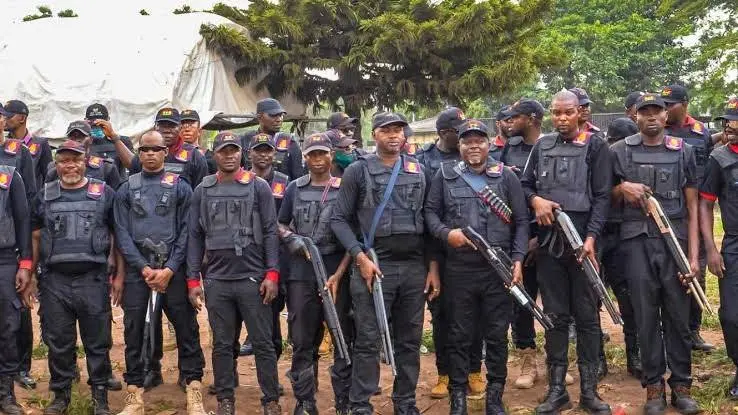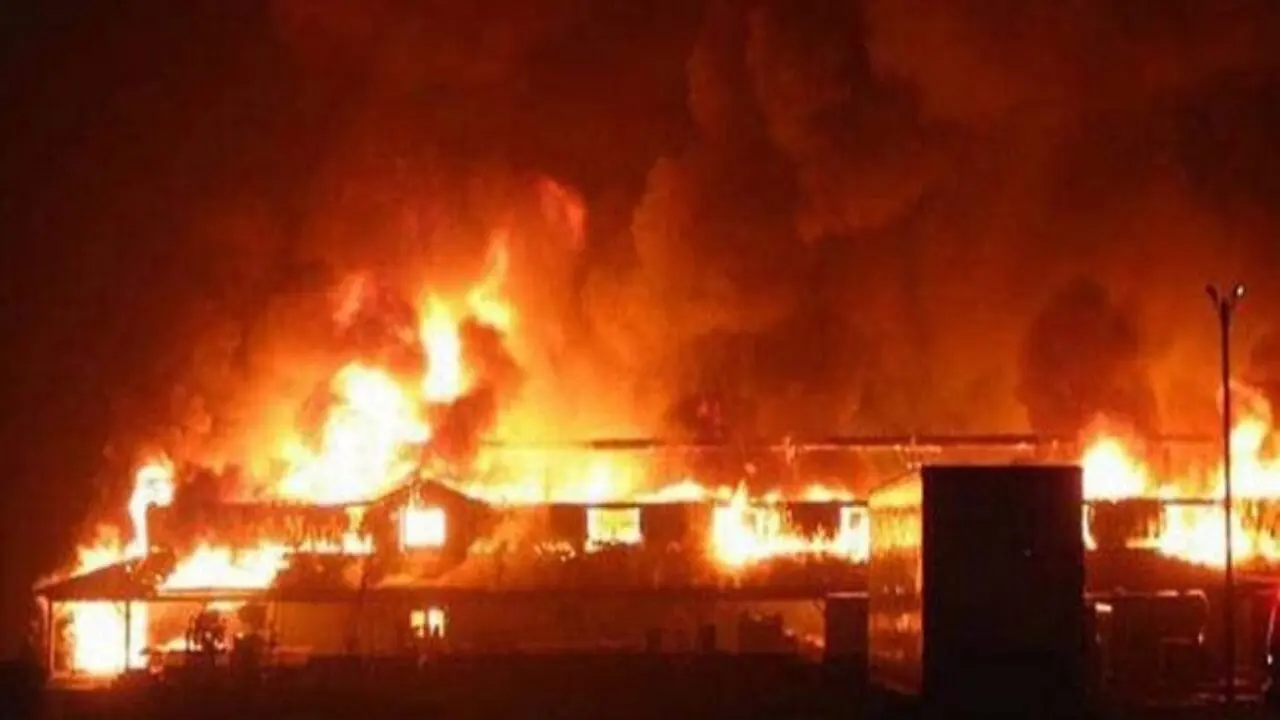The Senate erupted in outrage on Tuesday following the kidnapping of 25 schoolgirls from Government Girls’ Comprehensive Secondary School, Maga, in the Danko-Wasagu Local Government Area of Kebbi State.
Lawmakers described the attack—during which terrorists stormed the school around 4 p.m., killed the vice-principal and wounded the principal—as a national tragedy that further exposes Nigeria’s deepening security failures.
In its resolutions, the upper chamber urged President Bola Tinubu to immediately recruit at least 100,000 additional soldiers into the Nigerian Army to bolster overstretched forces. It also ordered a full investigation into the Safe School Programme, including how funds were released, to whom, and what was actually implemented.
Moving the motion, Senator Yahaya Abdullahi (Kebbi North) condemned the abduction as another “heinous assault” on the nation’s educational system, mirroring a similar incident in Kebbi in 2022.
“This is a slap in the face of our nation,” he said. “Parents are losing confidence in sending their children to school. What kind of nation cannot protect its children?”
Abdullahi called for an urgent rescue mission and a minute of silence in honour of the slain vice-principal.
Senator Adams Oshiomhole moved additional prayers urging President Tinubu to ramp up military recruitment.
With Nigeria’s population growing at more than three per cent annually, he argued, the current security manpower is grossly inadequate. He also called for a forensic probe of the Safe School Programme.
“It appears some individuals have turned security into a business—benefiting from appropriations while children remain exposed to danger,” he said.
Senate President Godswill Akpabio backed the investigation, insisting Nigerians deserve full transparency.
“These criminals are targeting soft spots,” he said. “We must find out why the Safe School Programme has failed.”
Former Plateau Governor Simon Lalong said technology must now drive rescue efforts.
“These girls were kidnapped yesterday. They did not vanish into thin air. They are somewhere, being moved around,” he said.
“With modern tracking tools, you can locate them from far distances. If we waste time, they’ll be beyond reach.”
Lalong urged security agencies to deploy mapping, surveillance, and real-time tracking, stressing that manpower alone cannot cover every inch of Nigerian territory.
The senator also expressed concern over repeated attacks targeting girls.
“This criminal act is almost always directed at the girl child,” he said, recalling the ordeals of Chibok and Leah Sharibu.
He demanded a full review of the Safe School Programme, once funded by the World Bank, and argued for a national security emergency to prevent further attacks on girls’ education.
Senator Mohammed Tahir Munguno (Borno North) described the abduction as a direct assault on the Nigerian state.
“Citizens surrender part of their sovereignty to government in exchange for safety. That social contract has been broken repeatedly,” he said.
Senator Francis Fadahunsi (Osun East) lamented the normalisation of school kidnappings.
“Security agencies are working in silos, and this disjointed approach is costing lives,” he said.
Senator Asuquo Ekpeyong said it was “heartbreaking and gut-wrenching” that Nigeria has failed for more than a decade to secure students from terrorism.
“Our children are not safe. A nation that cannot protect its pupils cannot claim to be a functioning state,” he said.
Senator Mohammed Sani Musa (Niger East) said the nation lacks the security manpower required to police its vast territory.
“With only 177,000 military personnel, it is impossible to secure every school, village, forest, and highway,” he said.
He called for community participation, intelligence sharing, and accountability to complement government efforts.
Former Sokoto Governor Aminu Tambuwal urged states to reassess the vulnerability of schools.
“Security is the foundation of community life,” he said. “During my tenure, we relocated schools and merged boarding facilities for safety. Kebbi must consider similar actions.”
Tambuwal warned that insecurity now transcends boundaries and requires a coordinated national response supported by political will and adequate resources.
Senator Abdul Ningi said Nigeria is facing an existential threat.
“This is not the time for appeasement,” he said. “Lives are being shattered daily. If any of us had a daughter in captivity, we would not be talking about negotiating with terrorists.”
The Senate established an ad hoc committee comprising the Committees on Finance, Defence, Army, Air Force, Education, and Police Affairs to investigate all appropriations and expenditures linked to the Safe School Programme.
The committee is mandated to determine why schools remain vulnerable despite years of significant funding.
Akpabio also warned against framing the Kebbi attack through religious lenses, saying, “Crime is crime. It does not matter under which administration it occurs. We must rescue our girls.”
Security forces have begun search-and-rescue operations, but senators warned that without manpower expansion, accountability, and technology-driven strategies, Nigeria will continue to experience similar tragedies.
Tuesday’s debate marked one of the strongest bipartisan condemnations of insecurity in months.
Lawmakers are expected to formalise resolutions urging the President to intensify rescue operations, overhaul school security nationwide, and consider a massive recruitment drive into the armed forces.
As the nation awaits updates on the abducted students, senators warned that unless urgent and decisive steps are taken, Nigeria risks further eroding public trust in its schools and security institutions.






